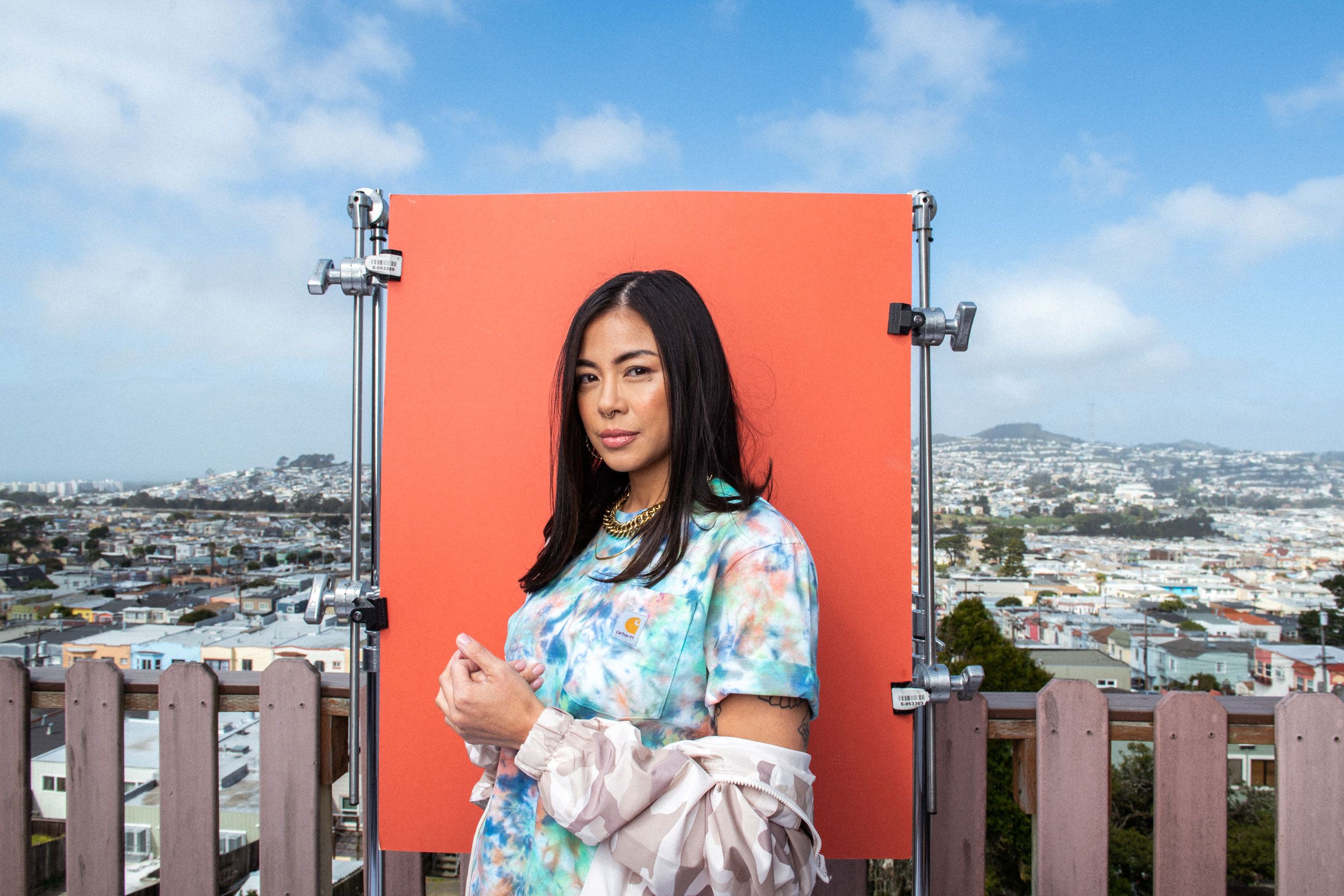[ad_1]

DJ Umami didn’t set out to become a DJ; in fact, when she was offered her first gig, she didn’t want to take it. Working the door for a party nearly 15 years ago, she ended up talking to one of the promoters who knew she had been practicing on her turntables. As he asked her to play an opening set and get it on the books, DJ Umami remembers hesitating. “He was like, Come on, just do it. And I did,” she recalls, comparing the experience to “being pushed in the pool and learning how to swim.”
That first event led to another DJ opportunity spinning at an event for female DJs that became a weekly thing. The offers kept coming in, and in 2012, the Golden State Warriors took notice, asking her to DJ their games. She eventually quit her day job in tech sales and got her current one, as resident DJ for the San Francisco Giants, in 2021, after a season spent covering weekend games. “I was shocked because I knew they were working with some other DJs who I thought were incredible,” she recalls of the offer. Nonetheless, “I took the job and here we are.” Now, she’s hyping up the crowds over 162 games per season, not including training or playoffs.
“I really, really believe in my heart this path chose me,” she says. “I wanted so badly to have this stable, ‘normal’ career.” But it was DJ-ing where she kept getting opportunities. “That wasn’t really happening in my nine-to-five life. And so I kind of followed that path of least resistance and kept doing what I love and finding joy in the path and being super grateful for all the blessings.”
Here, the Bay Area–born and –bred DJ shares tips for finding new music, setting the vibe, and making a career in spinning.
On how she got into music:
I was blessed to have music as a foundation in the house. I was forced to take piano lessons when I was little and didn’t really see the value in it until now. But from age 7 to 14, I had piano lessons every weekend. I ended up learning the guitar later in life, sang at church as a kid, sang in the choir at school — music was always just there. And there was a rocky point in my life where my parents got divorced, and music was healing.
When I was growing up, we didn’t really have access to streaming music or anything — we would buy albums and listen to the radio. I think radio was where I got obsessed with DJ-ing without really knowing it. I would record music from the radio on a blank tape in order to listen to these songs again and again. When things got digital, it was a whole other world of discovery.
How she sets the vibe:
When I DJ for the Giants, I mostly play hip-hop and top 40. I have these interim hits mid-game — they’re anywhere from a minute and a half to three minutes to 15 minutes, 20 minutes. I’m quick-mixing songs. I’ll try to get at least four or five songs within a span of two, three minutes. I incorporate a lot of scratching and mixing and quick-mixing into these small hits. I try to be as technical as possible and play up-tempo stuff, especially in the seventh inning.
On songs she loves to play:
In the Bay Area, the hyphy movement was huge. And we have some Bay Area artists who are pretty much pillars of my set: Too Short, E-40, Mac Dre, Iamsu!. They hype up the crowd and really bring out the pride of the Bay Area. I also play a lot of West Coast music. But I cannot play Snoop Dogg when the Dodgers are in town. We gotta keep it fully Bay Area.
I love to play female artists as well. Beyoncé is always a hit. But I’m going to say “Blow the Whistle” by Too Short or “Tell Me When to Go” by E-40 are probably the most-played tracks. With about 80 home games, people want to hear those Bay Area classic songs.
On what she wishes she had known before this gig:
I’m actually embarrassed to admit this, but honestly, I was a little naïve about baseball. Before stepping into this role, I didn’t really follow the sport as much as I did football or, obviously, basketball, because I came from basketball. When I got to the Giants, I wasn’t used to saying things like “inning”; I would accidentally say “quarter.” I’m sure people wanted to throw things at me.
On how she finds new music and inspiration:
Everywhere. I’m on a lot of the popular music blogs, but I have to balance my personal taste with what people like. Going to see other DJs is a good starting point; listening to mixes on Apple Music or SoundCloud or Mixcloud and seeing what my peers are doing. I look at a lot of playlists from popular radio stations — Hot 97 in New York — and see what they’re playing, because oftentimes new music will come out, but people aren’t responding to it yet.
TikTok and Instagram have been new tools for music discovery for me, too, or when I take Pilates classes, I’m like, What’s this song? Can you share this playlist with me? I will also say that I have leaned on other DJs in the sports world, like DJ Roueche, who is the Lakers DJ. I played a gig with him a couple basketball seasons ago, when the Lakers were playing the Warriors. He blessed me with a ton of tracks that he uses while he’s playing for the Lakers. I was so surprised. He’s so nice — one of the nicest DJs I’ve come across in basketball. A lot of DJs are happy and willing to share, and I love it.
On how others can make this their career:
I always tell younger DJs to stay practicing. Don’t be a jerk, just be a nice person; be pleasant to work with and have fun. Also, don’t just be on time, be early — listen to the opening DJ. I truly think the biggest thing is being on time.
DJ Umami’s Very Condensed Bay Essentials:
This interview has been condensed and edited for length and clarity.
[ad_2]
By Samantha Leal , 2024-04-03 16:00:39
Source link



